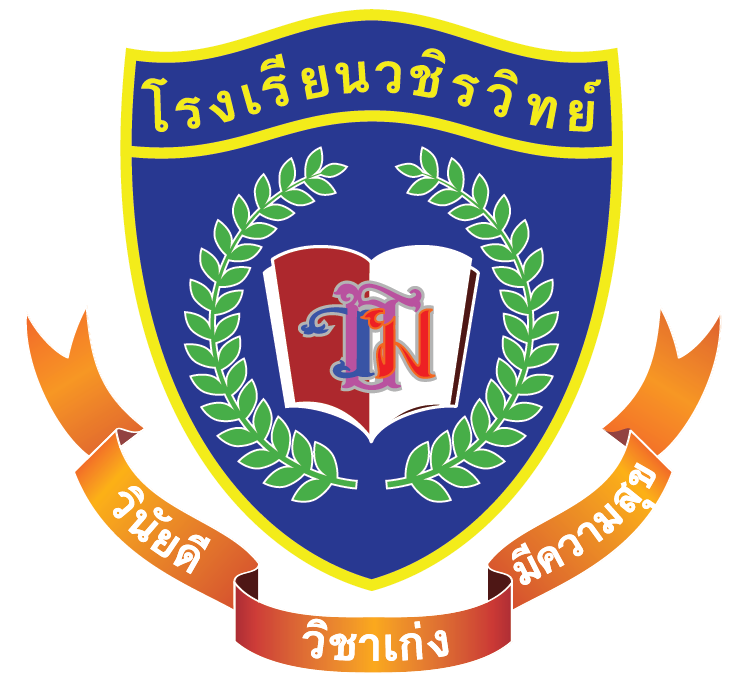
Wachirawit Chiang Mai School Primary Education Curriculum
Wachirawit Chiangmai School Curriculum
The primary department’s teaching and learning management applies a curriculum that promotes and develops each student’s potential, in alignment with the Basic Education Core Curriculum B.E. 2551 (A.D. 2008, Revised Edition B.E. 2560 / A.D. 2017), covering all eight learning areas. The program integrates Science Skills and Thinking Skills to enable students to analyze, differentiate, think creatively, and solve problems rationally, while acquiring the essential knowledge and skills required by the curriculum. Additional subjects in Chinese and English are provided, with English lessons taught by native-speaking teachers to enhance language proficiency.
Furthermore, the school offers art, music, and various sports such as swimming and taekwondo, along with extracurricular activities to develop students’ social skills. Moral values, ethics, local wisdom, and Thai cultural heritage are interwoven into learning, preparing students for a global society. The program offers two study plans.
แผนการเรียน ESPC+ : English Special Program Plus
The Basic Education Core Curriculum B.E. 2551 (A.D. 2008) and the Learning Standards and Indicators (Revised Edition B.E. 2560 / A.D. 2017)
Grades 1–6, Academic Year 2025
- An additional 5 English language periods are provided beyond the Basic Education Core Curriculum, including:
- Mathematics in English (1 period)
- Science in English (1 period)
- Social Studies in English (1 period)
- English Gifted Development Activities (2 periods)
- Additional Chinese Language Class – 1 period Chinese Language Talent
- Development Activities – 2 periods
ECSP Curriculum Plan: English-Chinese Special Program
Based on the Basic Education Core Curriculum B.E. 2551 (A.D. 2008) and the Revised Learning Standards and Indicators (A.D. 2017)

Wachirawit Chiang Mai School Secondary Education Curriculum
Wachirawit Chiangmai School Curriculum
The curriculum is designed to promote and develop students according to their potential, in alignment with the Basic Education Core Curriculum B.E. 2551 (Revised Edition B.E. 2560). All eight learning areas are integrated with scientific thinking skills and critical thinking skills. The school implements STEM-based learning with a focus on applying knowledge to real-life problem solving. This approach enables students to think analytically and creatively, and to solve problems with reasoning.
Students acquire the necessary knowledge and skills in accordance with the national curriculum. Additional instruction is provided in Mathematics, Science, Chinese, and English for Communication, as well as Life and Social Skills subjects. Various enrichment activities are organized to enhance students’ social skills while instilling moral values, ethics, local wisdom, and appreciation for Thai identity in a global context.
The Secondary School Program is divided into 2 levels:
Lower Secondary Level: ESPC+ Program (Grades 7–9)
Based on the Basic Education Core Curriculum B.E. 2551 (A.D. 2008) and the Revised Learning Standards and Indicators (A.D. 2017)
- English – 3 periods
- English for Communication – 1 period
- English Reading and Writing – 1 period
- Social Studies in English – 1 period
- Chinese Language
- Chinese Language Talent Development Activities – 2 periods
- English Language Talent Development Activities – 2 periods
Upper Secondary Level: Grades 10–12
- Science – Mathematics Program
- Arts – Mathematics Program
- Arts – Chinese Program
- Arts – Japanese Program
- Arts – French Program
- Arts – English Program
- Arts – Computer Program
- Arts – Music Program
- Arts – Sports Program
- Arts – Home Economics Program
Science Track (Grades 10–12)
- English
- Fundamental English – 1 period
- English for Conversation – 3 periods
- English Reading and Critical Thinking – 2 periods
- Chinese
- Chinese Language Skills – 1 period
- Talent Development Activities
- Mathematics Talent Development Activities
- English Talent Development Activities
- Thai Language and Social Studies Talent Development Activities
- Science Talent Development Activities
Arts Track (Grades 10–12)
- English
- Fundamental English – 2 periods
- English for Conversation – 4 periods
- English Reading, Critical Thinking, and Analysis – 2 periods
- Chinese
- Chinese Language Skills – 1 period
- Talent Development Activities
- Mathematics Talent Development Activities
- English Talent Development Activities
- French Talent Development Activities
- Chinese Talent Development Activities
- Japanese Talent Development Activities
- Thai Language and Social Studies Talent Development Activities
- Music Talent Development Activities
- Sports Talent Development Activities
- Home Economics Talent Development Activities
***Specialized Talent Development Activities: 4 periods per week (elective)
Wachirawit Chiang Mai School aims to develop students to meet quality standards based on the Basic Education Core Curriculum. Achieving these learning standards helps students acquire five essential competencies as follows:
- Communication Skills The ability to use language to convey thoughts, knowledge, understanding, feelings, and opinions, enabling the exchange of information and experiences beneficial for self-development and society. This includes negotiating to resolve or reduce conflicts, making rational and accurate decisions about accepting information, and selecting effective communication methods while considering the impact on oneself and society.
- Thinking Skills The ability to analyze, synthesize, think creatively, critically, and systematically, leading to the creation of knowledge or information that supports appropriate decision-making for oneself and society.
- Problem-Solving Skills The ability to understand the relationships and changes in social events, seek knowledge, and apply it appropriately to prevent and solve problems based on reason, ethics, and information. This also involves making effective decisions with consideration for their impact on oneself, society, and the environment.
- Life Skills The ability to manage daily life processes, engage in continuous self-learning, work and coexist harmoniously in society by fostering good interpersonal relationships, appropriately handling conflicts and problems, adapting to societal and environmental changes, and avoiding undesirable behaviors that negatively affect oneself and others.
- Technology Skills The ability to select and use various technologies and technological processes to develop oneself and society in learning, communication, work, and creative problem-solving in a correct, appropriate, and ethical manner
